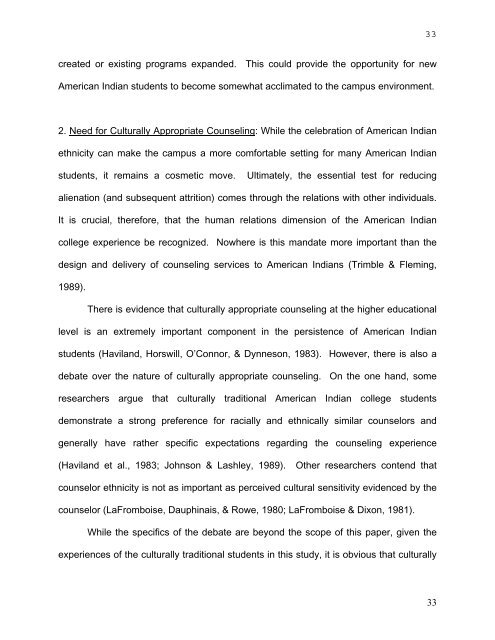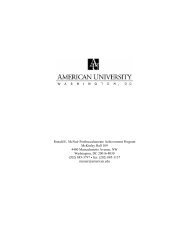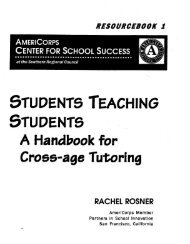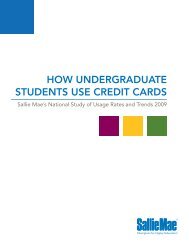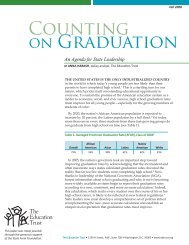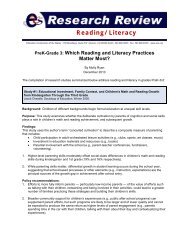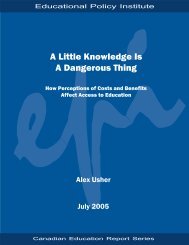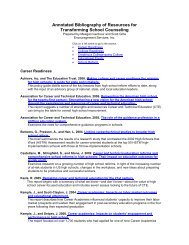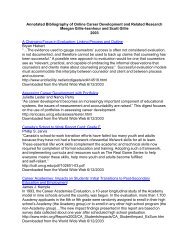Resistance Theory and the Transculturation Hypothesis
Resistance Theory and the Transculturation Hypothesis
Resistance Theory and the Transculturation Hypothesis
You also want an ePaper? Increase the reach of your titles
YUMPU automatically turns print PDFs into web optimized ePapers that Google loves.
33created or existing programs exp<strong>and</strong>ed. This could provide <strong>the</strong> opportunity for newAmerican Indian students to become somewhat acclimated to <strong>the</strong> campus environment.2. Need for Culturally Appropriate Counseling: While <strong>the</strong> celebration of American Indianethnicity can make <strong>the</strong> campus a more comfortable setting for many American Indianstudents, it remains a cosmetic move. Ultimately, <strong>the</strong> essential test for reducingalienation (<strong>and</strong> subsequent attrition) comes through <strong>the</strong> relations with o<strong>the</strong>r individuals.It is crucial, <strong>the</strong>refore, that <strong>the</strong> human relations dimension of <strong>the</strong> American Indiancollege experience be recognized. Nowhere is this m<strong>and</strong>ate more important than <strong>the</strong>design <strong>and</strong> delivery of counseling services to American Indians (Trimble & Fleming,1989).There is evidence that culturally appropriate counseling at <strong>the</strong> higher educationallevel is an extremely important component in <strong>the</strong> persistence of American Indianstudents (Havil<strong>and</strong>, Horswill, O’Connor, & Dynneson, 1983). However, <strong>the</strong>re is also adebate over <strong>the</strong> nature of culturally appropriate counseling. On <strong>the</strong> one h<strong>and</strong>, someresearchers argue that culturally traditional American Indian college studentsdemonstrate a strong preference for racially <strong>and</strong> ethnically similar counselors <strong>and</strong>generally have ra<strong>the</strong>r specific expectations regarding <strong>the</strong> counseling experience(Havil<strong>and</strong> et al., 1983; Johnson & Lashley, 1989). O<strong>the</strong>r researchers contend thatcounselor ethnicity is not as important as perceived cultural sensitivity evidenced by <strong>the</strong>counselor (LaFromboise, Dauphinais, & Rowe, 1980; LaFromboise & Dixon, 1981).While <strong>the</strong> specifics of <strong>the</strong> debate are beyond <strong>the</strong> scope of this paper, given <strong>the</strong>experiences of <strong>the</strong> culturally traditional students in this study, it is obvious that culturally33


